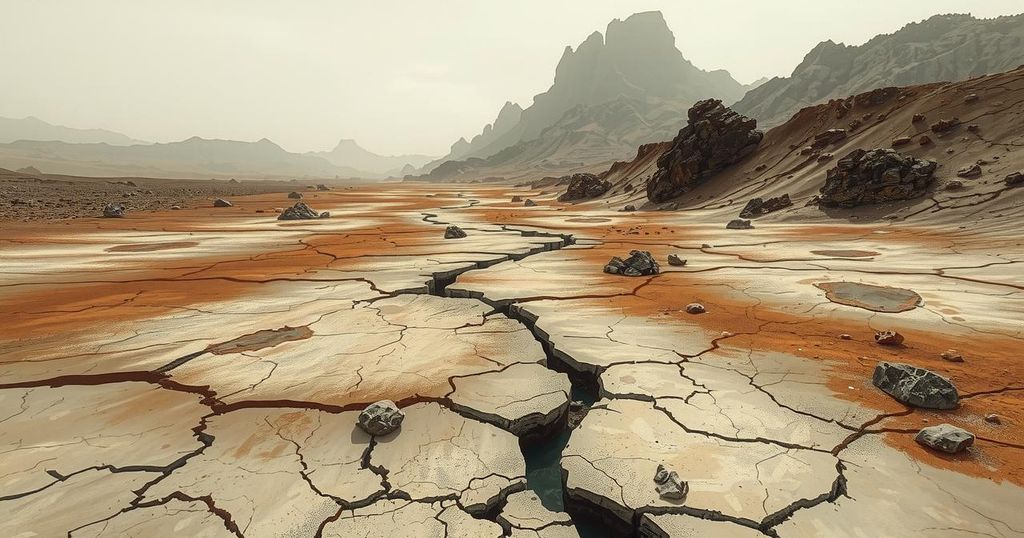The repeal of El Salvador’s mining ban raises environmental alarms after historic mining practices destroyed water sources, notably the San Sebastián River. President Bukele cites potential gold deposits worth $131 billion, sparking division between environmentalists and proponents of mining. Acknowledging past damages, experts question the actual viability of these resources, highlighting the need for responsible management of the country’s environmental and economic future.
Environmental concerns regarding mining have intensified in El Salvador, especially with the repeal of a ban on metal mining that had been in place since 2017. The San Sebastián River has suffered from severe contamination due to past mining activities, leading to fears that similar consequences could emerge elsewhere in the country. President Nayib Bukele urged lifting the ban, citing potential gold deposits worth $131 billion, though environmentalists question the reliability of these claims.
The historical context of mining in El Salvador is distressing, particularly regarding the San Sebastián mine, which led to negative impacts on local water quality. Community leader Graciela Funes highlighted persistent contamination issues, stating, “Here are the facts,” while urging collective action against mining activities. This sentiment is echoed by environmentalist Vidalina Morales, emphasizing the necessity of preserving water sources in affected communities.
Biologist Cidia Cortés pointed out that the San Sebastián mine once ranked as Central America’s most productive but left behind substantial environmental degradation and health issues. The state has yet to address the consequences of these mining operations adequately, which raises concerns about reviving such practices amid existing challenges.
Supporters of renewed mining initiatives argue for the potential economic benefits, claiming it could notably improve living conditions. Political analyst Nelson Flores describes the opportunity for economic development, asserting, “It would be absurd to deny the country the possibility of advancing in its economic development.” However, he acknowledged modern extraction methods may mitigate environmental harm.
Critically, experts question the credibility of the projected gold deposits. Ricardo Navarro from the Salvadoran Center for Appropriate Technology underscored the likelihood that the gold reserves have been overstated. Furthermore, economist Julia Martínez expressed skepticism about the actual existence of substantial gold reserves and criticized the government’s focus on potential revenues without adequate research into the situation.
The repeal of the mining ban in El Salvador raises significant environmental concerns, particularly regarding water contamination and public health. The nation’s historical context of mining demonstrates past failures to mitigate environmental damage. While proponents of mining envision economic growth, grave doubts persist about the existence and viability of gold reserves. The divided perspectives underscore the urgent need for comprehensive studies and responsible decision-making regarding El Salvador’s natural resources.
Original Source: ticotimes.net




